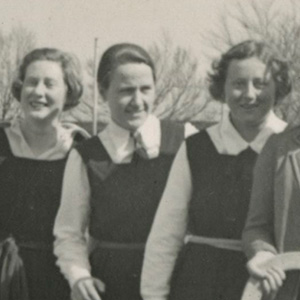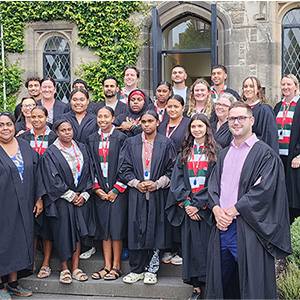

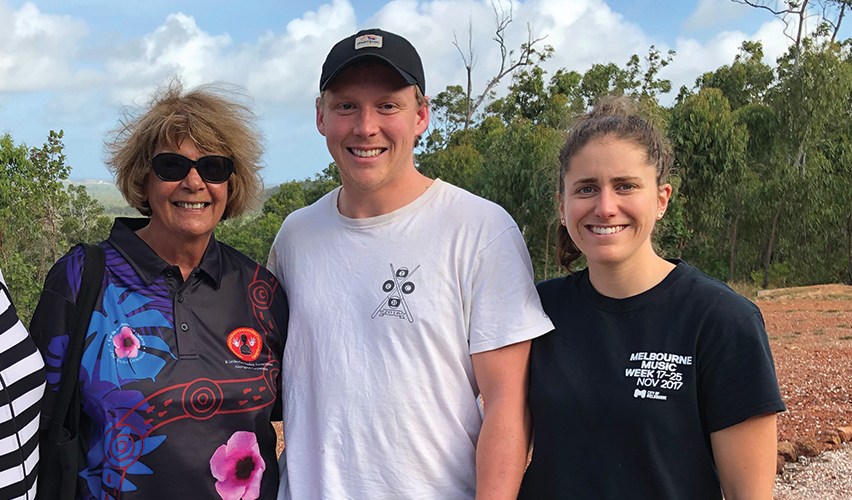
Above: Pat Turner, CEO of the National Aboriginal Community Controlled Health Organisation (NACCHO), with Trinity students James Wiffen and Phoebe Ulrick
Garma in Yolngu language means the mixing together of saltwater and freshwater. A ‘garma’ is a collective Yolngu concept and a public ceremony, where knowledge originating from different cultural groups is generated and exchanged. The annual four-day festival of the same name is attended by more than 2500 business, political, education, and philanthropic leaders, which this year included a small delegation of Trinity College students and staff. The theme for Garma 2019 was ‘pathways to our future’, with a diverse array of speakers presenting on key topics including constitutional recognition, health, education, and opportunities for economic development.
As a final year medical student, I am no foreigner to the damning statistics that describe the poor health of Indigenous and First Nations peoples as a population group in Australia. This significant and ongoing inequity is also manifested by difficulties in achieving the Close the Gap health targets at a national level every year. Sadly, current medical education lacks opportunities to develop skills in culturally appropriate healthcare delivery. Thus, I was keen to attend Garma to hear firsthand about healthcare delivery within regional and remote communities, and hopefully to develop a framework to think about and tackle issues surrounding the future delivery of efficacious, patient-centred healthcare to Indigenous Australians.
I have returned from Garma with a lot to consider in both a personal and professional context. The impact that my experiences from Garma have had on my framing and thinking of key issues, particularly regarding constitutional law and health, cannot be overstated. The knowledge I have gained has helped me to piece together a more coherent and sophisticated view of how health, education and culture intersect. Even more importantly, to borrow a term from Aboriginal leader Noel Pearson, I have come away with a sense of ‘radical optimism’, and a clearer sense of the pathway towards achieving a future for all Australians that is fair, just and right.
Several key concepts emerged during the festival. Taking inspiration from the 2019 Naidoc theme of ‘Voice, Treaty, Truth’, moving forward it is important that Indigenous people have a voice and must be consulted on issues that affect them directly. For me, the importance of this autonomy was demonstrated by the successes of the ‘Homelands school’ program and the Miwatj health organisation, both of which are run by Yolngu people for Yolngu people. Secondly, the significance of the Uluru Statement from the Heart and striving for constitutional recognition was discussed at length, and is something the government and Australian people will have to take action on soon. Thirdly, it is crucial to combat the culture of entrenched forgetting. As Noel Pearson said: ‘our cause will not fall victim to truth; only lies will defeat us’.
Regarding my questions about health, the Yolngu people have the answers – successful ways of healing already exist in Yolngu culture and have done for thousands of years. Therefore, it is important to stop, to listen, and to learn the wisdom offered by Yolngu elders.
It is difficult to articulate the immersive atmosphere and energy present at Garma. There is a pervasive feeling that the interactions unfolding around you are both important and necessary. It is as if you are at the epicentre of a movement that has the power to exert social, economic and political change Australia wide. In this light, it was simultaneously incredibly inspiring and humbling to be present, to listen, and to have a voice in the discussion. While some speakers communicated some confronting and heavy truths, I believe that the sense of disquiet and discomfort I experienced was shared by other listeners and was wholly necessary. It is important to seek out this discomfort, to feel it, and then utilise it as fuel to fire the change that I hope to see in the fabric of our nation.
Garma as an annual event is critically important. It is a place where everything is stripped back. Typical hierarchical structures evaporate as you pass through the entrance gates – regardless of your status, whether you are a CEO, politician, senior academic or otherwise, all are rendered equal as guests of the Gumatj clan at the Gulkula site. As a result, Garma is a place where respect, connection, and understanding prevails. Where barriers to open and honest discussion that may exist elsewhere melt away. Where there is a mixing of saltwater and freshwater, a bridge between two coexisting cultures, an opportunity to walk in two worlds and bring them together, in unison.
I leave you with the words of Djawa Yunupingu: ‘Looking up through the stringybark trees to the future, with the law by our side, that is fair, just and right… What a future that would be to sing about… I want to sing about those proud Australians who speak quietly with their friends and families and say – no more standing at the crossroads, it’s time to sort this out.’
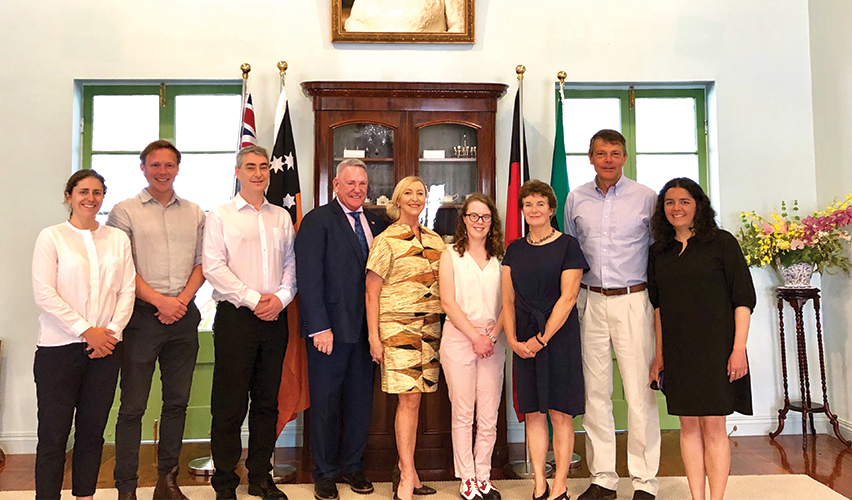
The Trinity group paid a visit to Government House during their trip: (L–R) Phoebe Ulrick, James Wiffen, David Collis, Craig O’Halloran, the Honourable Vicki O’Halloran AO (Administrator of the Northern Territory), Meg Thompson, Carole Hinchcliff, Trinity Warden Professor Ken Hinchcliff, Sashi Nair
Pat Turner, CEO of the National Aboriginal Community Controlled Health Organisation (NACCHO), with Trinity students James Wiffen and Phoebe Ulrick
Related News
-
News & Stories
- Our Theological School Student President's mission to champion a spiritual and welcoming environment
- Jack reaps the rewards after taking a leap of faith on Trinity College
- Trinity alum named in King's Birthday Honours 2025
- Trinity Deputy & Academic Dean appointed Fellow at Center of Theological Inquiry
- Meet Trinity's aspiring art curator Seb Moore
- Trinity College offers its congratulations to newly elected Archbishop of Melbourne, the Right Reve
- Events
- Art
- Music & Choir
- Campus Development Projects
- Visiting Scholars & Lectureships
- Accommodation for Visitors
- Short Programs
- Work at Trinity


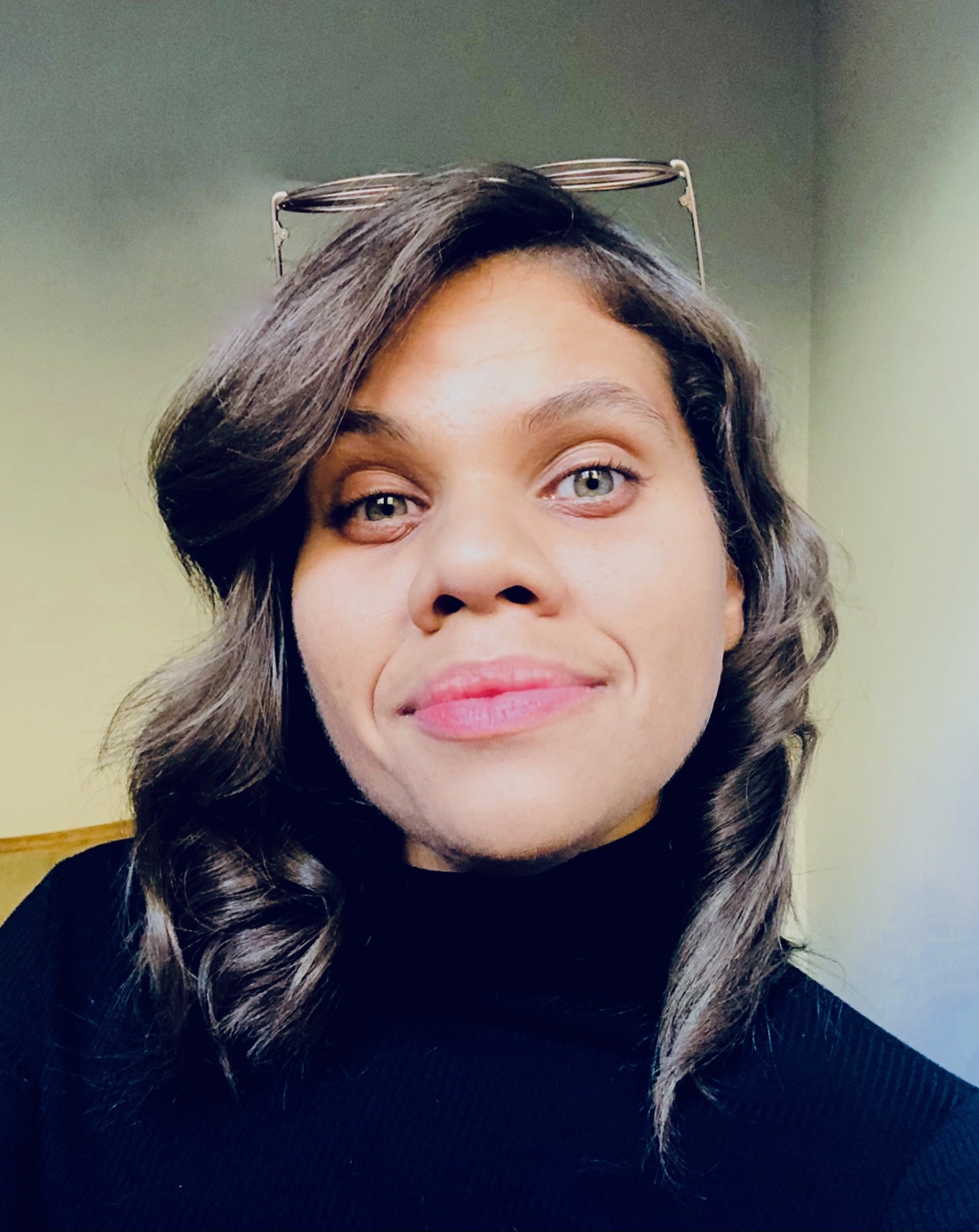
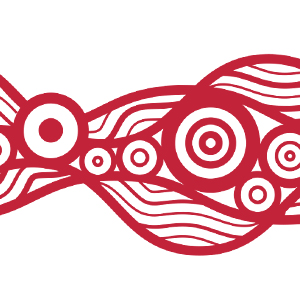
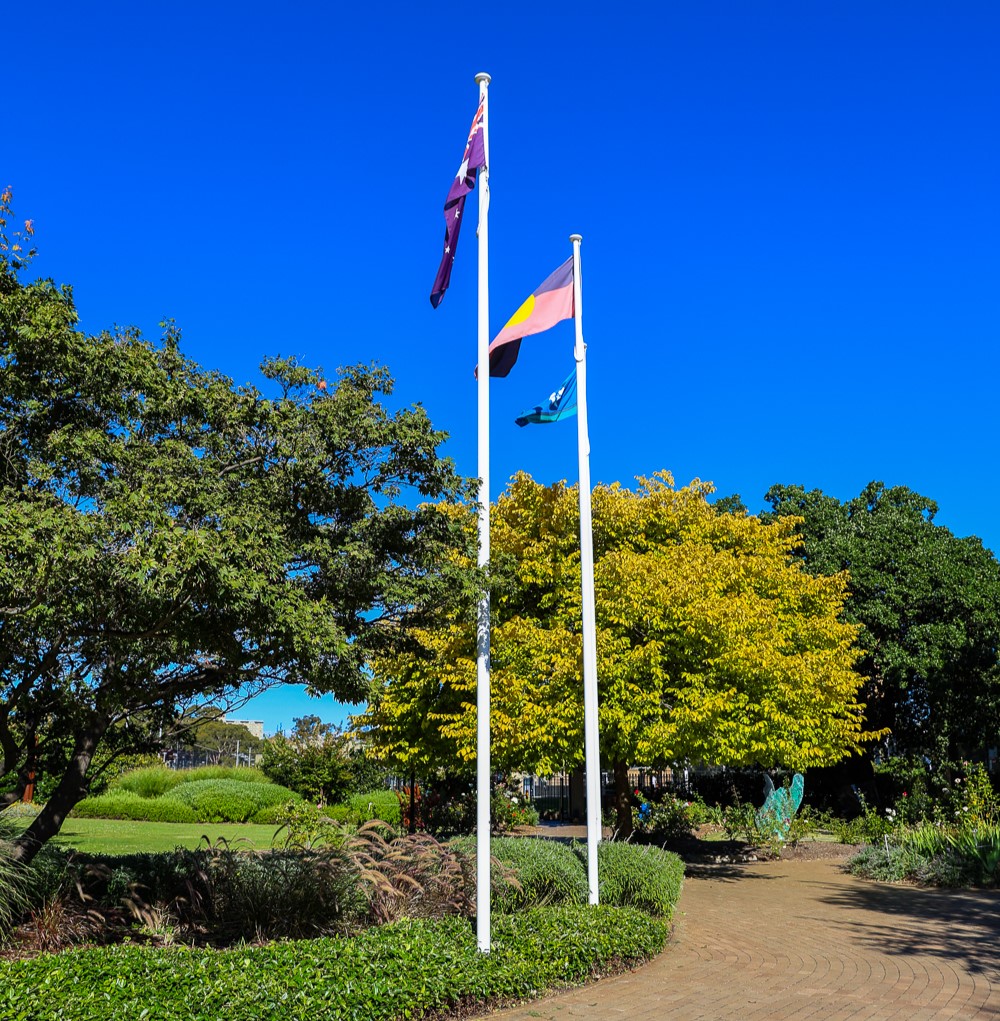
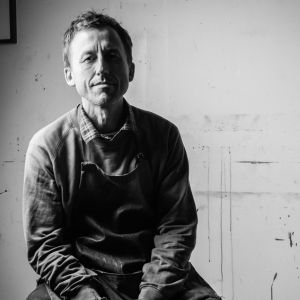.jpg?width=300&height=300&ext=.jpg)
